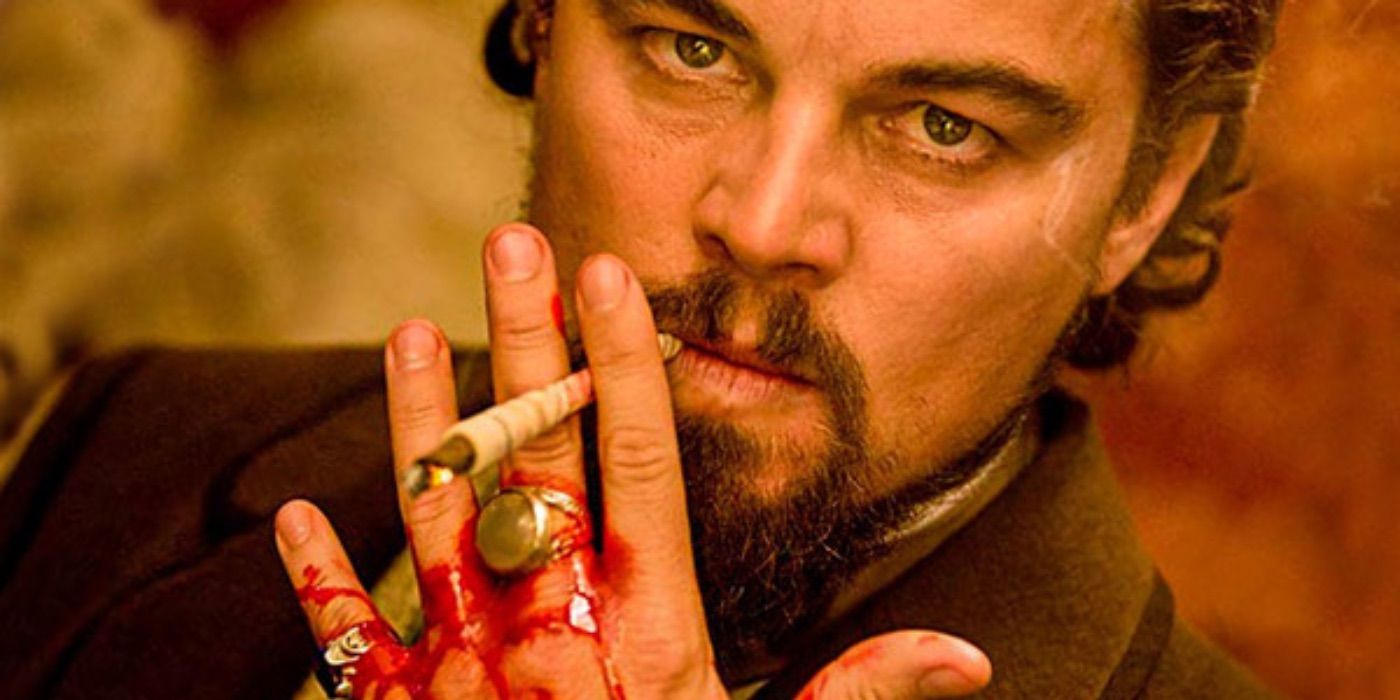Jamie Foxx revitalizes a familiar on-set story where the Django Unchained cast reacted to Leonardo DiCaprio being unable to bring himself to say one word. Django Unchained was Quentin Tarantino’s first foray into the Western genre, stepping into it with his stylistic flare and unforgettable dialogue. The film was ultimately a success, earning an 87% Rotten Tomatoes score from critics and a 92% from moviegoers while making $425 million worldwide. It was praised for its ambition and style but, like several of Tarantino’s films, it was also criticized for its heavy use of the n-word.
In a new video with Vanity Fair, Foxx reminisces over several of his films, including Django Unchained, where he recalls a behind-the-scenes story where costar DiCaprio, who plays a brutal plantation owner in Mississippi, had a hard time saying the n-word. Foxx remembered DiCaprio saying it wasn’t in his personal character to say the n-word. However, after expletive encouragement from costar Samuel L. Jackson and a hard talk with Foxx, DiCaprio was able to lock into the character of Calvin Candie and tap into the necessary evil to play the role without limits. Read or watch Foxx’s retelling of the story below:
We’re doing a reading and Leo says, ‘Hey man, hey guys, cut, I– I– I just can’t do this. This is not me.’ And Samuel L. Jackson: ‘Say that sнιт mother****er! It’s just another Tuesday! F*** ’em!’ And I told Leo, I said, ‘In slavery days, we would never talk to each other. So I’m not your friend. I’m not Jamie Foxx. I’m, you know, I’m Django.’ And as I told him, I said, ‘You won’t be able to play that character unless you know what slavery was about. It was tough, it was horrific.’
So the next day, I see Leo. He walks up and I say, ‘Leo what’s up . . . L . . . L what’s up!’ He don’t speak to me. He ready. So everybody started, y’know, uh, diggin’ in.
What This Means For Django Unchained
DiCaprio Needed To Portray His Character Authentically Despite How Offensive It Was
Tarantino’s films are partly notorious for their use of the n-word, and Django Unchained was no different. In fact, the Oscar-winning script reportedly used the word about 110 times as an insult, proper noun, and filler word. This sparked controversy and outrage with arguments considering the use of the word as pejorative. However, many were quick to defend the film’s use of the word, stating that the word was, in a sense, essential to the language of the time and for depicting racism and slavery with authenticity.
Along with the n-word, Django Unchained was riddled with disturbing and in-your-face portrayals of certain elements regarding slavery. The provocativeness lines with Tarantino’s creative approach to such heavy topics, delivering the message with no coat of sugar, save for a dash of style that often adds a campy flavor to his otherwise dark films. With DiCaprio playing the main antagonist, being able to say the n-word while overcoming the anxiety, might have been the key ingredient needed to play the role to its full potential.
Our Take On DiCaprio’s Struggle With The Word
DiCaprio Gave A Very Intense & Award-Worthy Performance
While I admire DiCaprio’s struggle with the word, I am thankful for Foxx’s insight and advice. Saying the n-word as Calvin, the spaghetti western’s symbol of slavery and racism, was important for DiCaprio to understand the nature of the character and the themes he represented. He needed to be the villain. It may have taken some convincing for him to accept this, but once he did, he gave a cold-hearted and relentless performance in Django Unchained that served as a shocking but much-needed reminder of the still rampant racism in America.
Source: Vanity Fair






